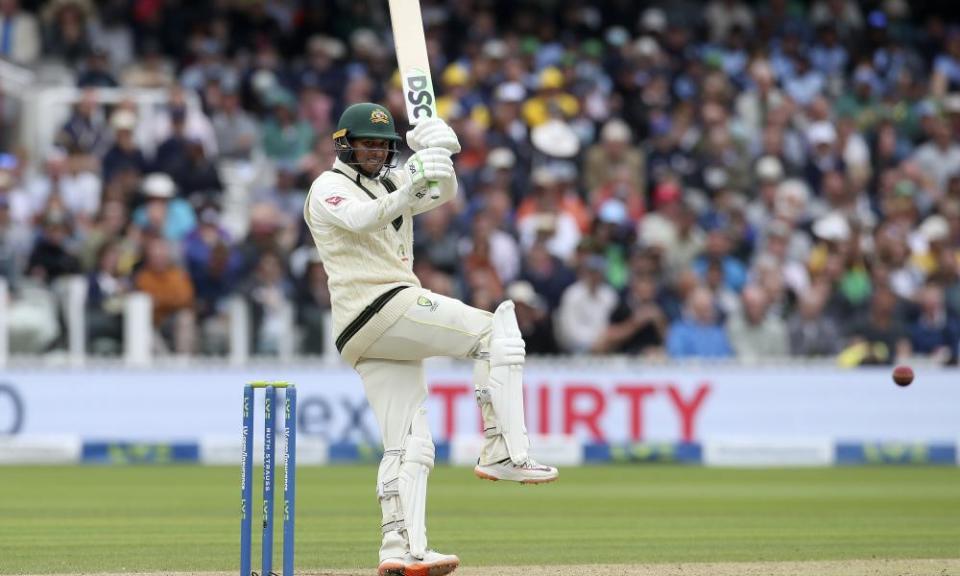England’s men of Bazball are putting fun before winning. Why not try both?

And frankly, is this not what the people want? Australia may be on the verge of going 2-0 up after enduring the worst of the conditions, the loss of their champion spinner and an out-of-form No 3 batter. But these are mere details, and the men of Bazball do not trouble themselves with details. Could they have gone harder? Could they have lost their wickets in even more perplexing ways? Could they have thrilled us even more? When cornered, don’t back down. Double down.
For all the wildness and weirdness of the darkening evening, this Test turned on the slapstick of the morning session, when England resumed with a slight advantage on 278 for four and were dismissed just 15 overs later. There is a school of thought out there that if you appreciated England’s style of cricket when they were winning, then it is unfair to criticise it when it fails to come off. This is a little bit like arguing that if you have ever enjoyed a meal at a restaurant, you are not entitled to complain when they give you E. coli on your next visit. It’s just the way they cook. They’re taking a whole new approach to gastronomy. And ultimately, when you get down to it, is there really any difference between fine dining and violent diarrhoea?
Related: England’s finest fast bowling pair feel the passage of time | Andy Bull
What we are being asked to accept, in effect, is not so much the vicissitude of sporting performance as a kind of inviolable creed. Accept this thing in full, as it is, without conditions or caveats. Your feedback is not required. Your judgement does not concern us. And of course this is fine when you win 10 out of 11 Tests. People will come along for the ride. Bazball’s foundational principle is sound and admirable: that sport is not simply about winning, but style and fun, making memories, leaving a mark. But, you know, maybe try both?
Let’s deal with England’s top seven in ascending order of nonsense. Ben Stokes got a fine early delivery from Mitchell Starc that straightened up the slope. Ben Duckett, on 98, hooked a ball that was there to hook. Jonny Bairstow tried to wallop the ball straight down the ground, a shot he is demonstrably very good at. Zak Crawley came down the track to Nathan Lyon in an attempt to get to the pitch and was stumped. These things happen.
To the middle order. Harry Brook was out trying to cut a bouncer aimed at his left ear: unutterably ugly but not without a certain logic, given there were only three fielders in front of square. Ollie Pope was caught on the boundary after being suckered into an uncharacteristic outburst of machismo by Cameron Green, the cricketing equivalent of Ed Miliband saying, “Hell yes, I’m tough enough”.
Then you have Joe Root, caught trying to swipe a bouncer from Starc early in his innings. Of all England’s batters, it is Root who has not just the widest range of strokes but the security and judgment and experience to deploy them as he sees fit. Why not the upper cut, a shot he is reliably very good at, rather than the frenzied swat, which he is not? Pope and Root are perhaps the best examples of how a philosophy based on empowerment and self-expression has given way to a curiously limiting uniformity. You have full freedom to play your natural game, as long as it is the same as ours.

The great batters – Steve Smith is the best example – project an air of permanence. They break the spirit. You start to despair of ever getting them out. Nor is this approach synonymous with dour resistance: this is largely how England won last summer. Stokes against South Africa at Old Trafford, Pope against New Zealand at Trent Bridge, Bairstow against India at Edgbaston: these were innings of substance as well as style, thrilling and aggressive, but smart too. It is not a betrayal of principle to take five easy singles per over when the field is set back. It is not a humiliating retreat to play out a few quiet overs and wait for the opportunity to attack. It is, in fact, the only reliable way of winning Test matches.
Related: Usman Khawaja helps Australia ease away after England’s day three collapse
What we are seeing here instead is a kind of nihilism, a self-protective cowardice masquerading as bravery. We hear a lot about bravery in the context of this England, but has there been a more courageous cricketer on either side than Usman Khawaja, fearlessly weathering everything England have thrown at him, trusting unswervingly in his technique and his method in alien conditions? Is there not a courage in refusing to be indifferent to the prospect of defeat?
Lock your heart away and it will never be broken. “We’re in the entertainment business, not the sporting business,” Stokes likes to say, and when you follow that thread to its natural conclusion perhaps this is the result: a team fatally committed to the bit, that has actively begun to seek adversity in order to conquer it. On they roll, swishing and swiping, grinning in their bucket hats, feverishly chasing their next buzz.

